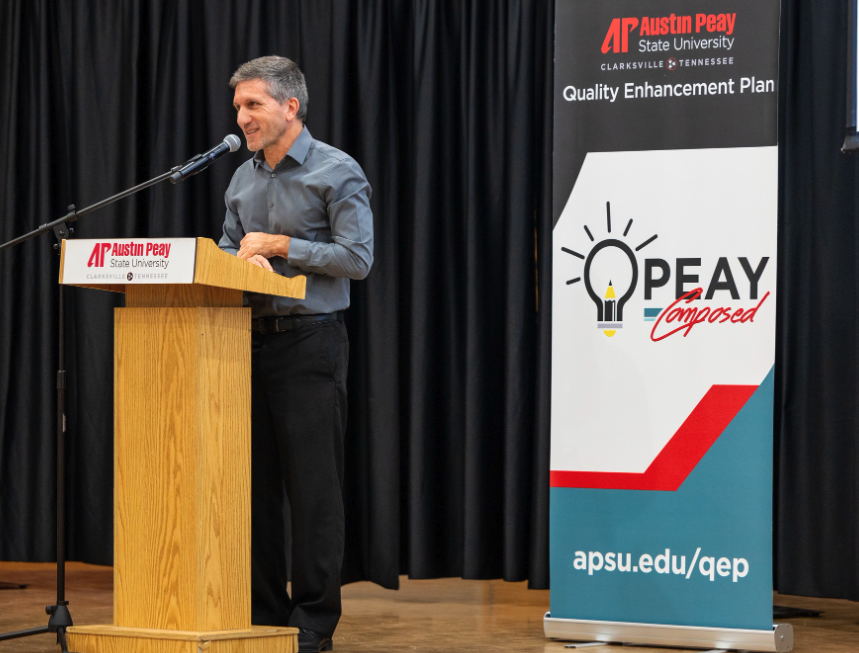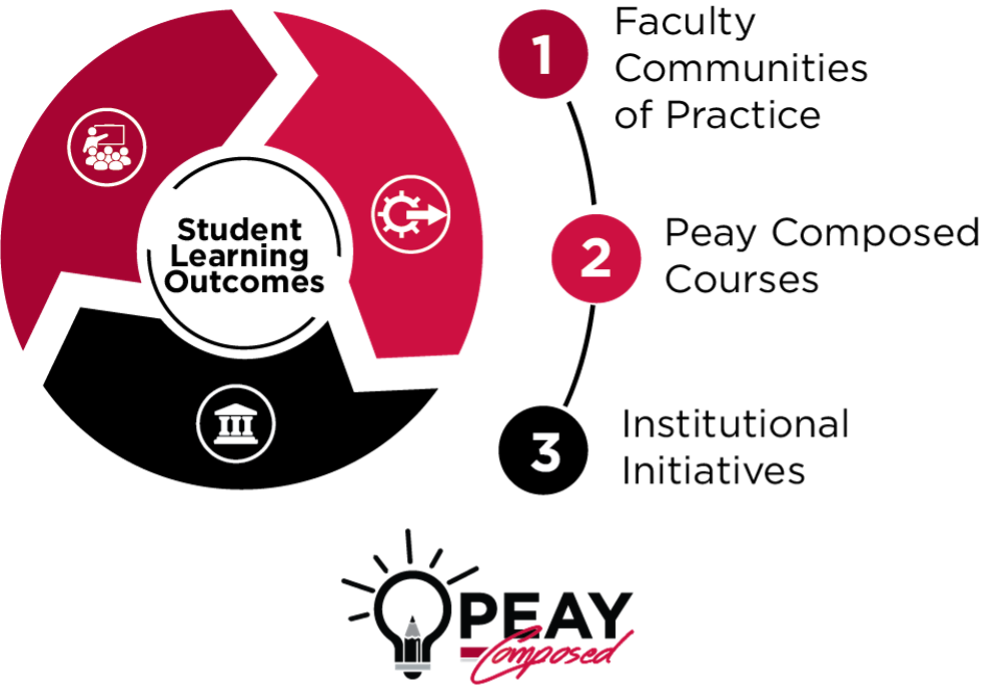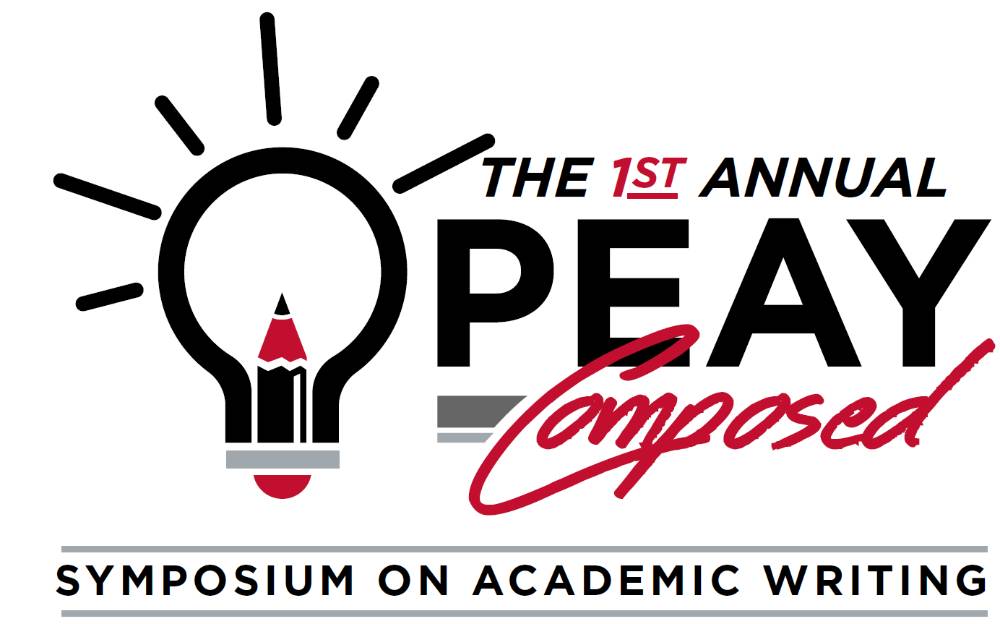December 4th, 2025, Peay Composed hosted the First Annual Peay Composed Symposium on Academic Writing. The event was open to faculty and staff who support students' academic writing. The symposium was led by renown and leading scholar in writing across the curriculum, Dr. Dan Melzer.
Dr. Melzer is a distinguished professor at the University of California, Davis University Writing Program. He is a co-author of the third edition of Engaging Ideas: The Professor's Guide to Integrating Writing, Critical Thinking, and Active Learning in the Classroom.


Peay Composed Faculty Information
Peay Composed consists of various activities and initiatives supporting our students’ writing, metacognition, and self-regulation, culminating in implementing innovative and effective pedagogical approaches and integrated student support resources to teach and assess writing in Peay Composed courses.
Essential components of Peay Composed

-
faculty communities of practice,
-
integrating student support resources and pedagogical best practices in Peay Composed courses and
-
developing and implementing various institutional initiatives, all designed to support the student learning outcomes of Peay Composed.
Each component of Peay Composed supports the others.
Faculty community of practice (FCoP)
The faculty community of practice provides a collaborative space for faculty to explore innovative pedagogical interventions to be implemented in their teaching. Through the participation of faculty learning communities, faculty engage in reflective practices to analyze, reflect, and revise pedagogical elements to improve student writing outcomes and associated self-regulation and metacognition skills.
The work and reflection in the faculty community of practice will be implemented in a future writing intensive course taught by the faculty participant. These will be referred to as Peay Composed courses. Peay Composed courses are courses where the writing instructions and assessment have been thoughtfully revised to support students’ writing outcomes. The goals of the faculty community of practice include ensuring course alignment of writing outcomes, assessments, and content; innovative and effective teaching and assessment strategies to improve students’ writing, metacognition, and self-regulation skills; and integration of existing student support, such as the Writing Center, Center for Academic Support & Enrichment, and Library that aim to reframe help-seeking as a valuable academic skill rather than remediation. The faculty community of practice aims to support faculty in their preparation for participation in Peay Composed courses.
Faculty receive a stipend upon completion.
Peay Composed Courses
Peay Composed courses will incorporate the thoughtful and intentional integration of student support resources and appropriate pedagogical strategies based on the needs of the course, the assignments, and the students. These resources may include the university’s writing center tutors and support, Center for Academic Support & Enrichment support, library support, educational technologies, etc.
Within the faculty community of practice, faculty will find ways to effectively integrate appropriate student support resources and evidence-based pedagogies into the course. Firstly, these resources are integrated into the course to support students’ achievement of written communication outcomes. However, integrating institutional student support resources in the Peay Composed also aims to develop an institutional culture of help-seeking, peer review, and success.
Eligible courses are ones that have writing assignment(s) that:
-
align with the QEP Student Learning Outcomes
-
supports existing course learning outcomes and is submitted for a grade
-
fit into the broad genre of argument and/or analysis, and
-
requires students to write at least two pages or approximately 1000 words.
Faculty receive a stipend upon completion.
Questions?
If you are a tenure track or full-time faculty who teaches a qualifying course and would like to learn more about Peay Composed, don't hesitate to get in touch with the Office of the QEP.
